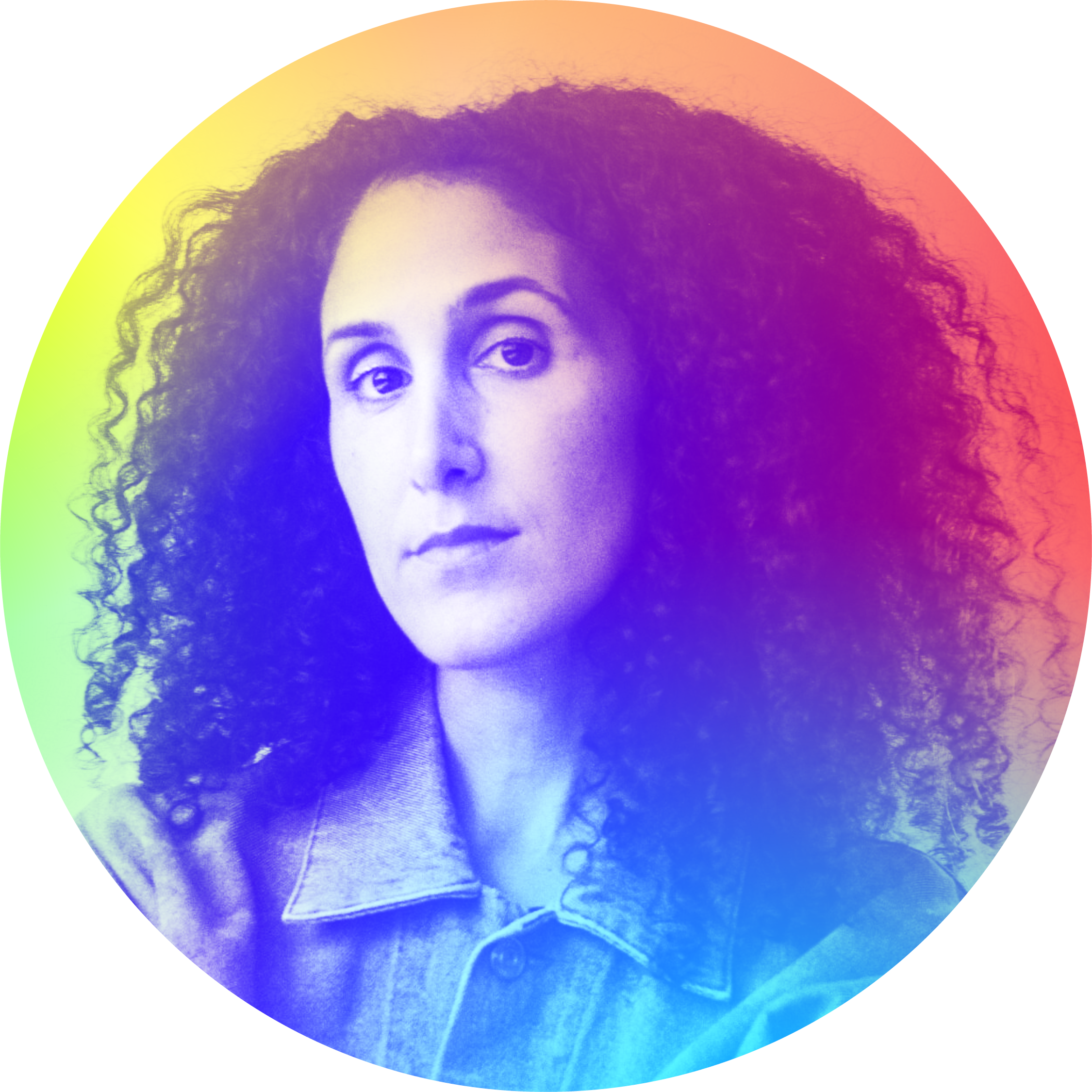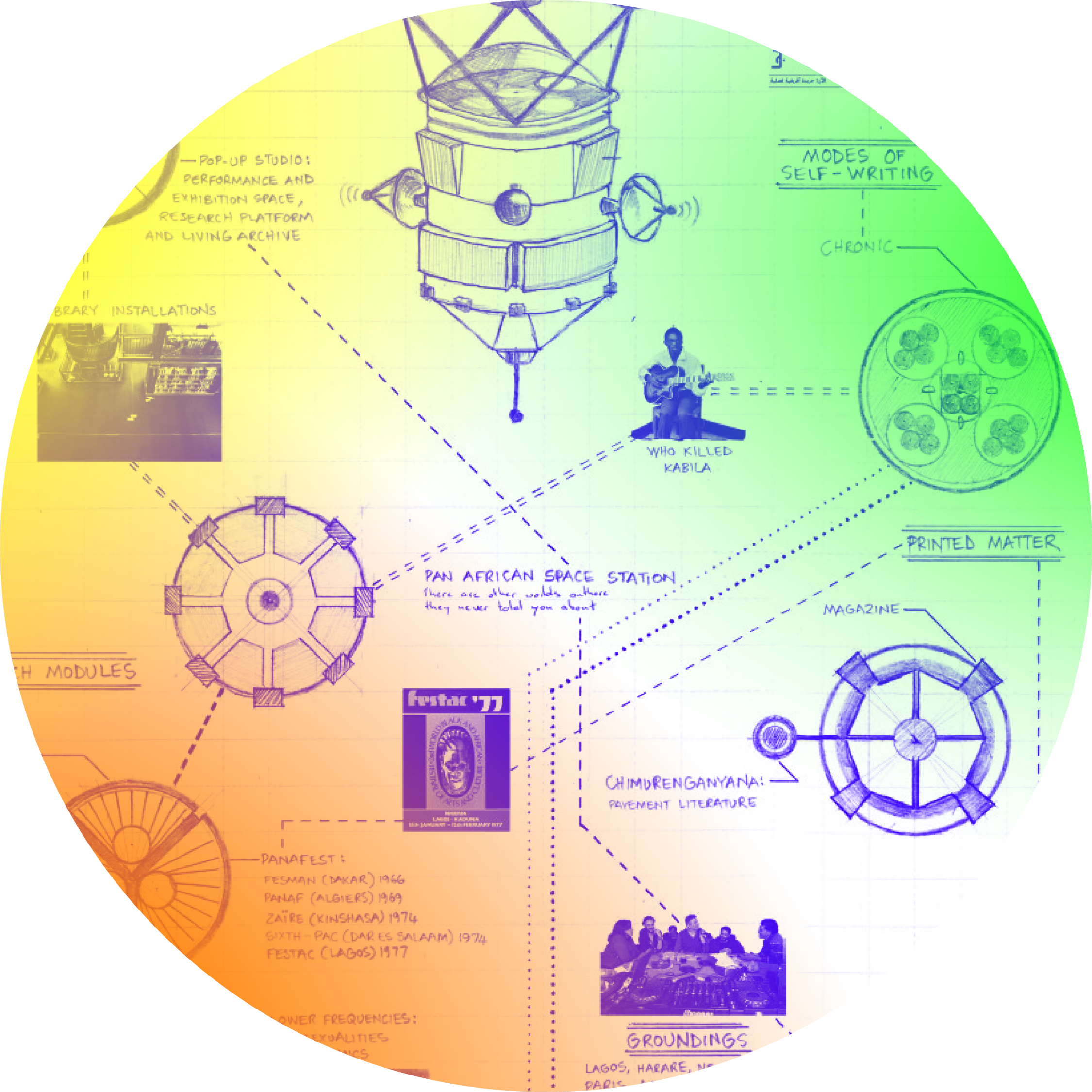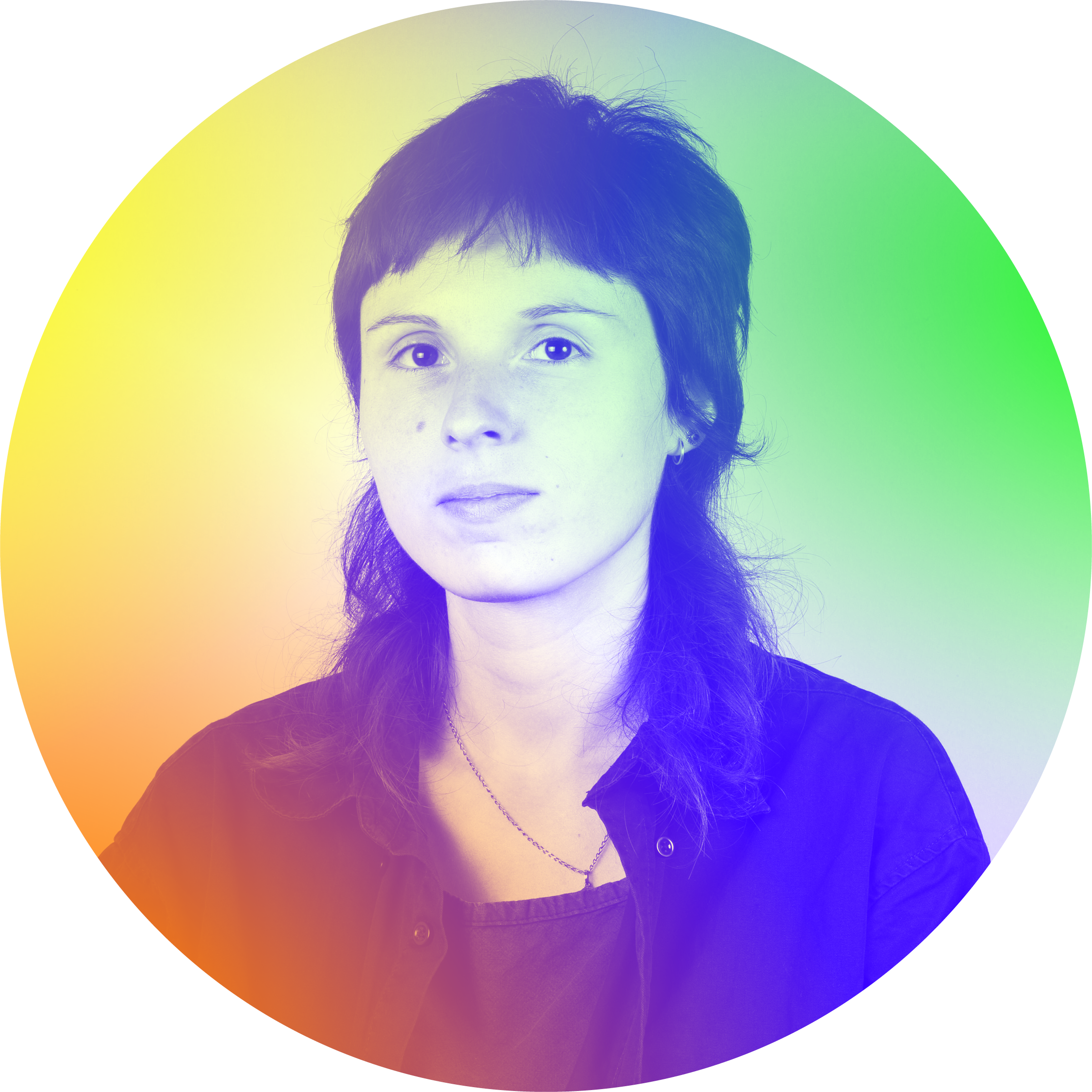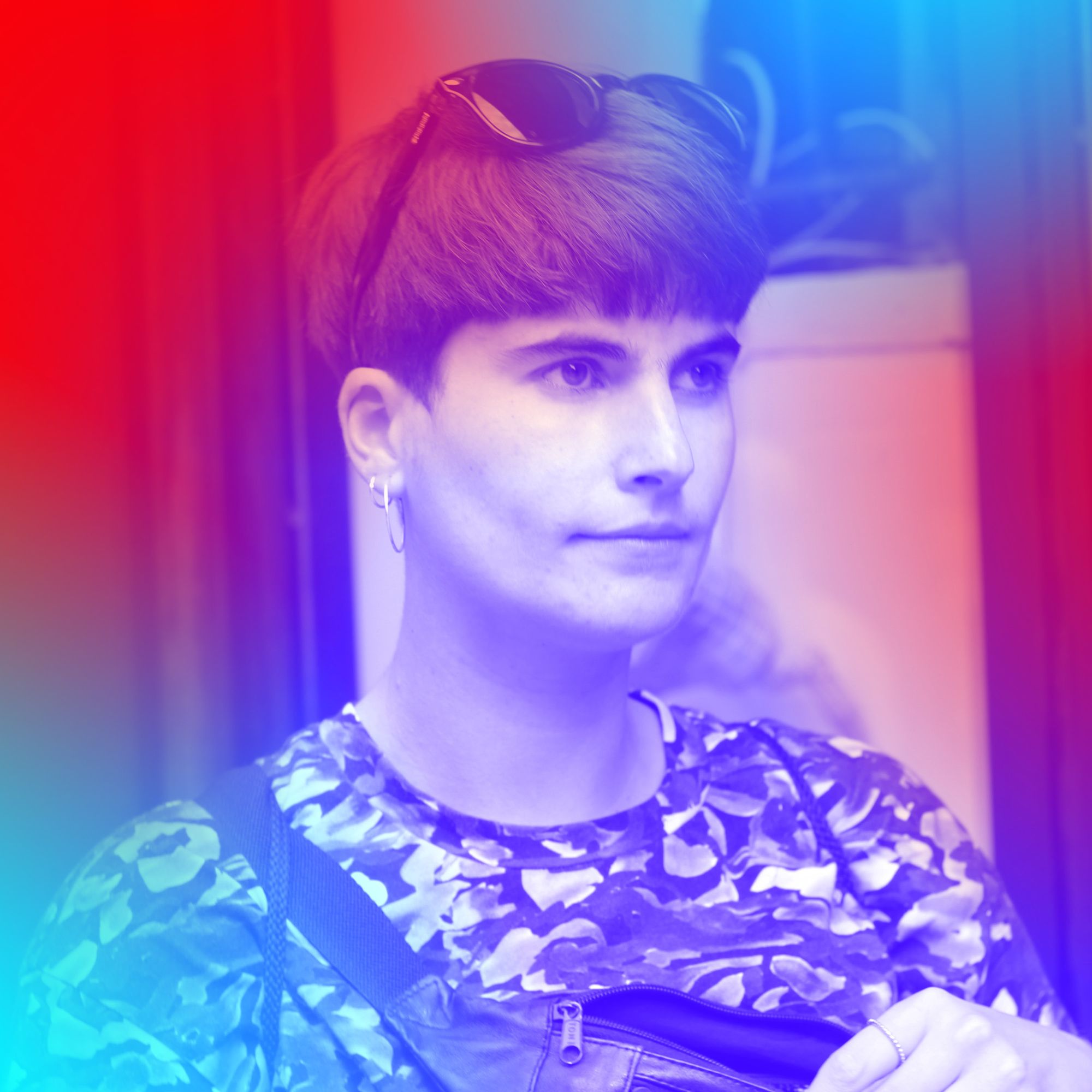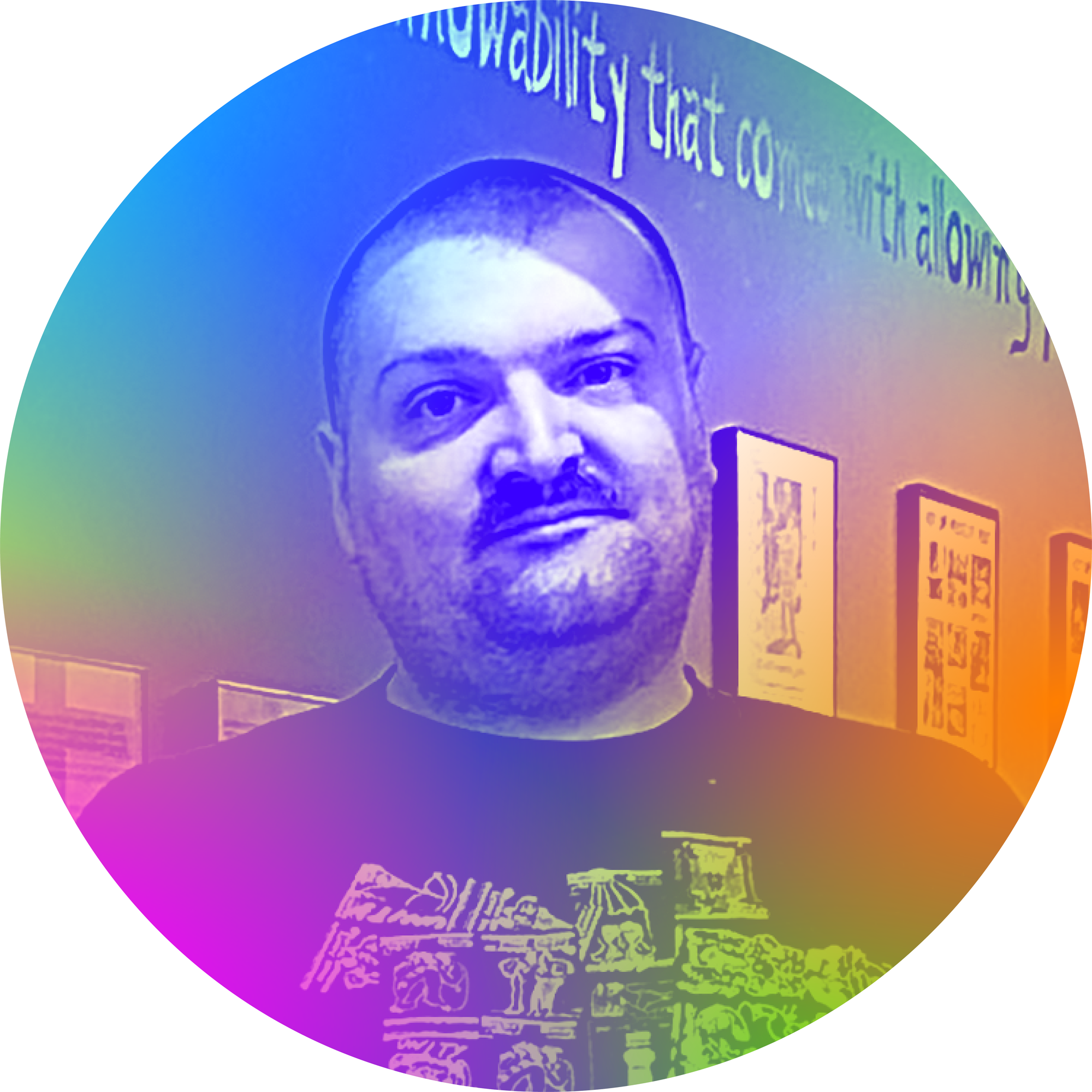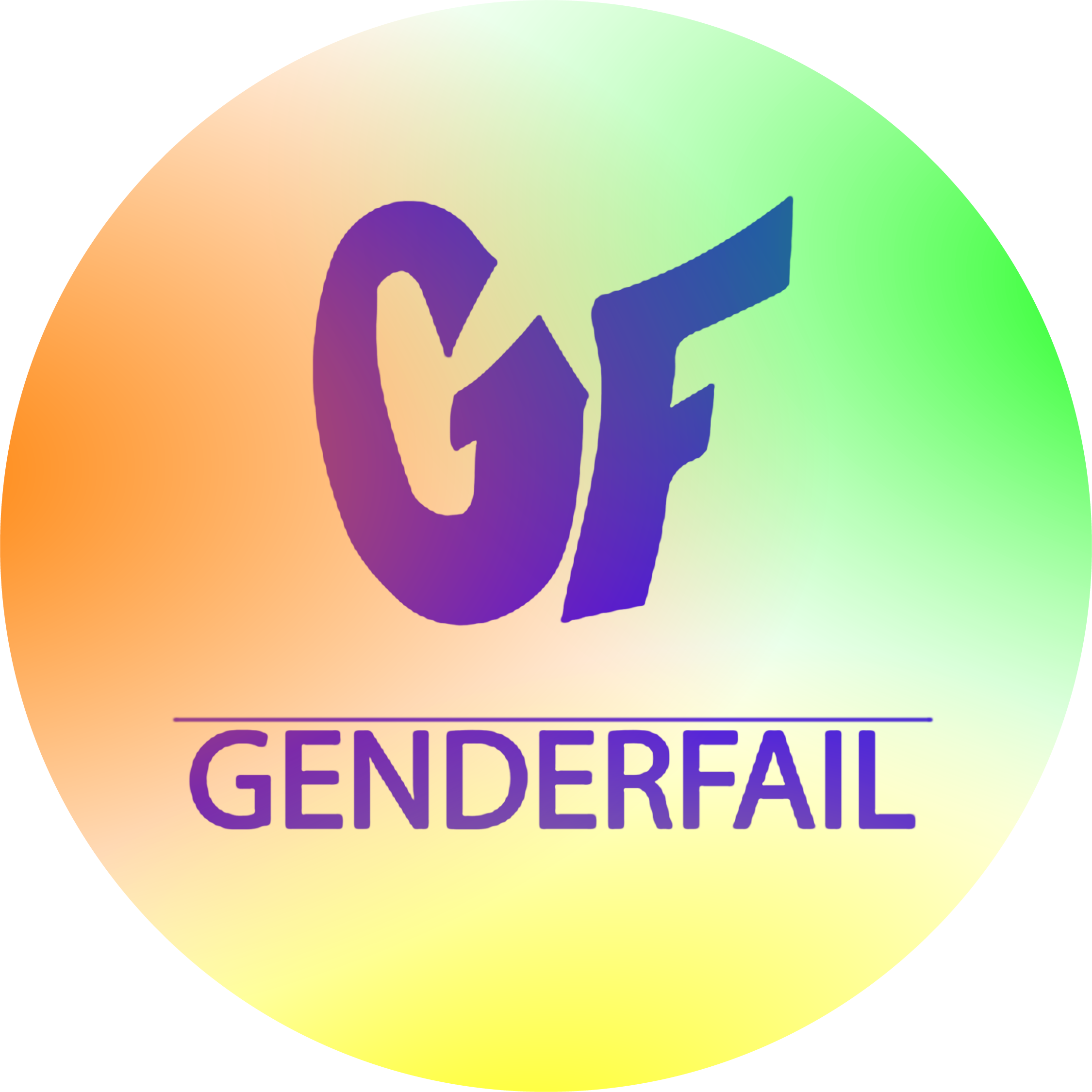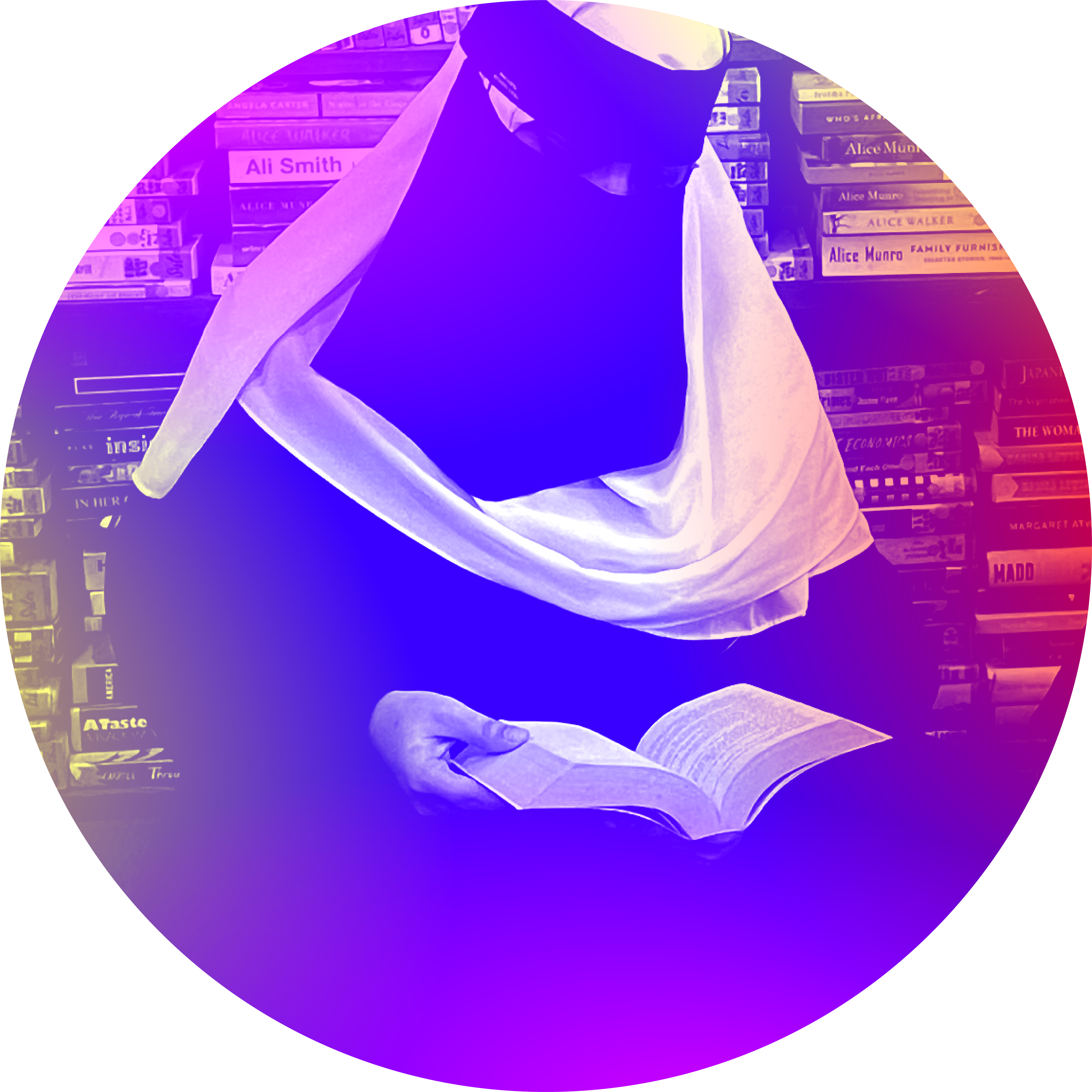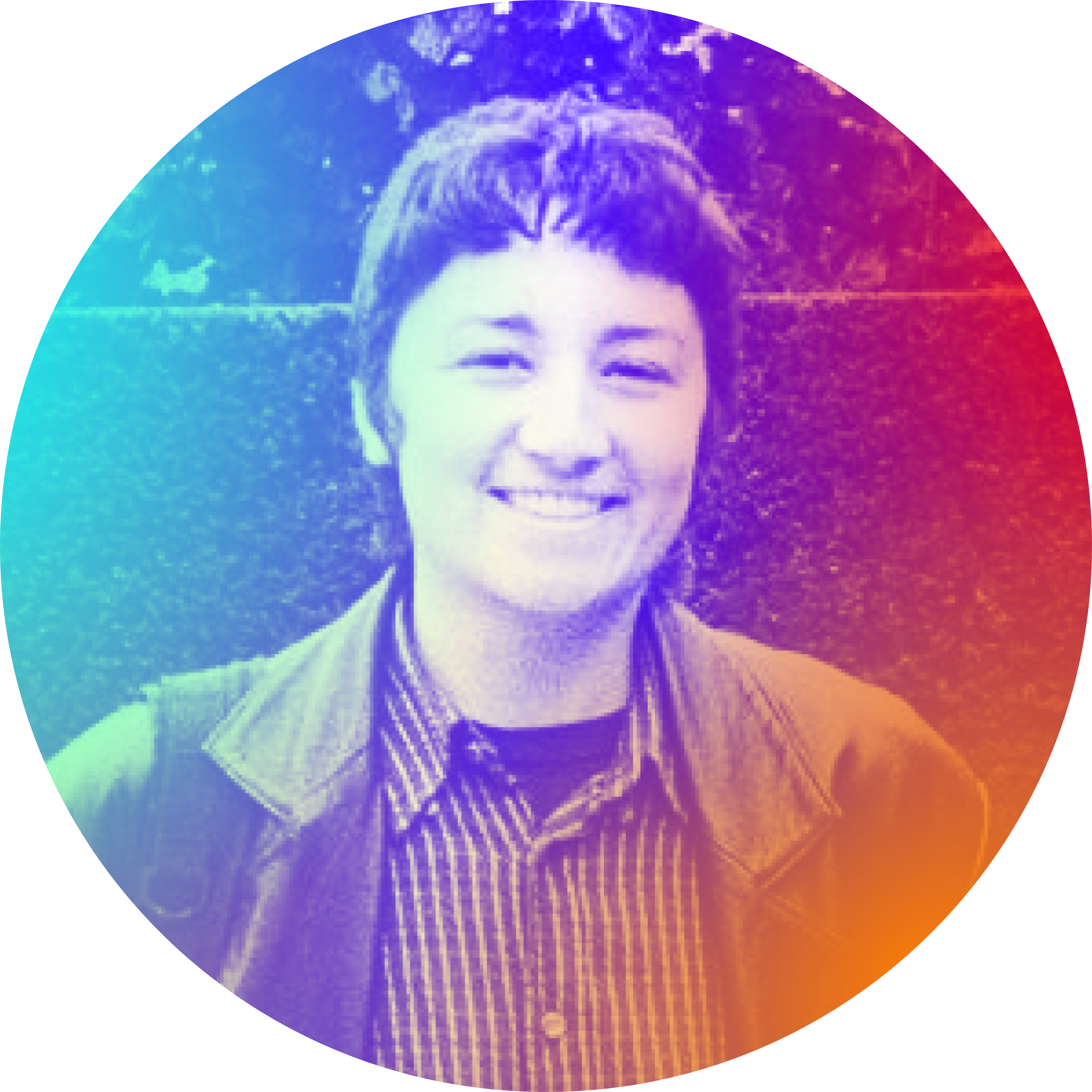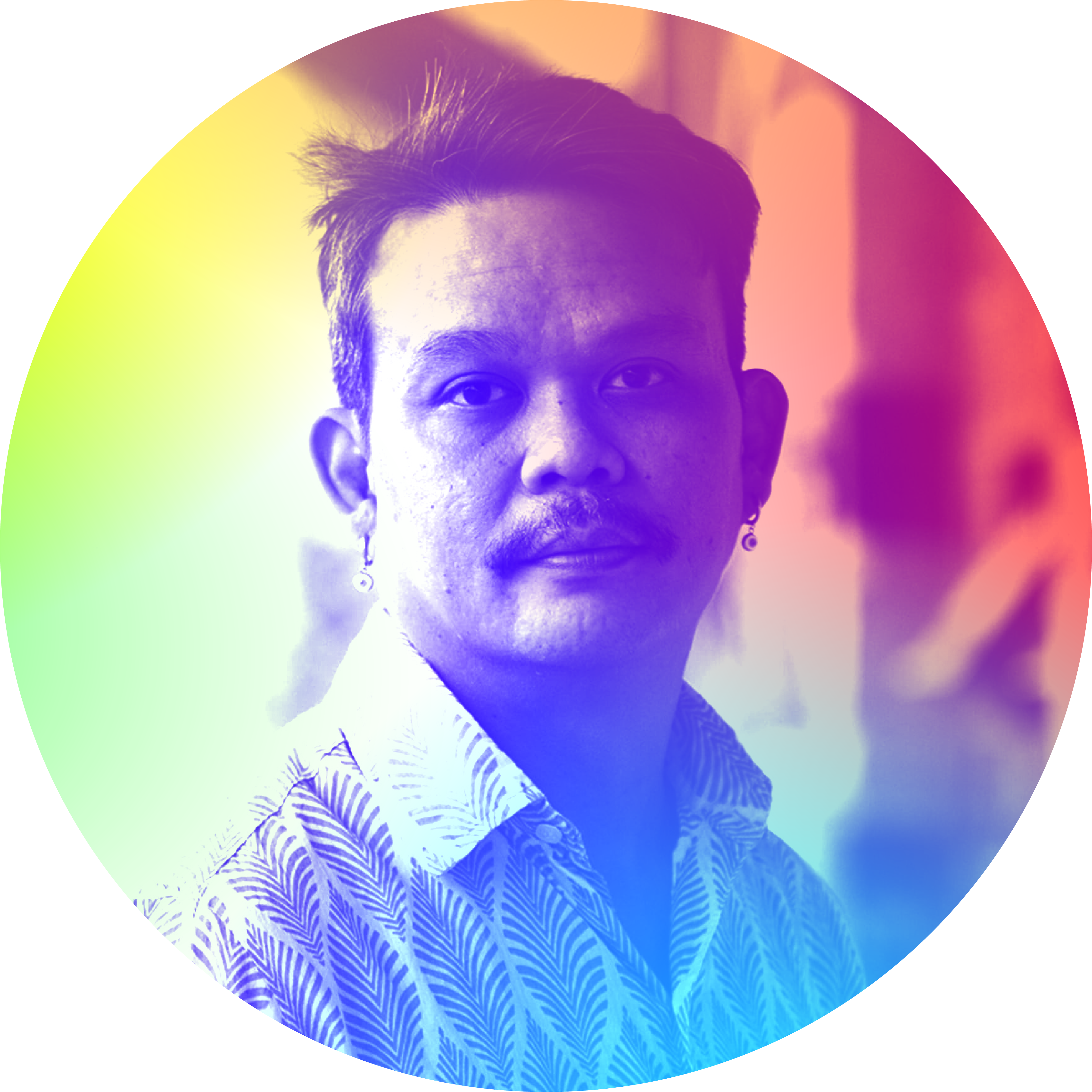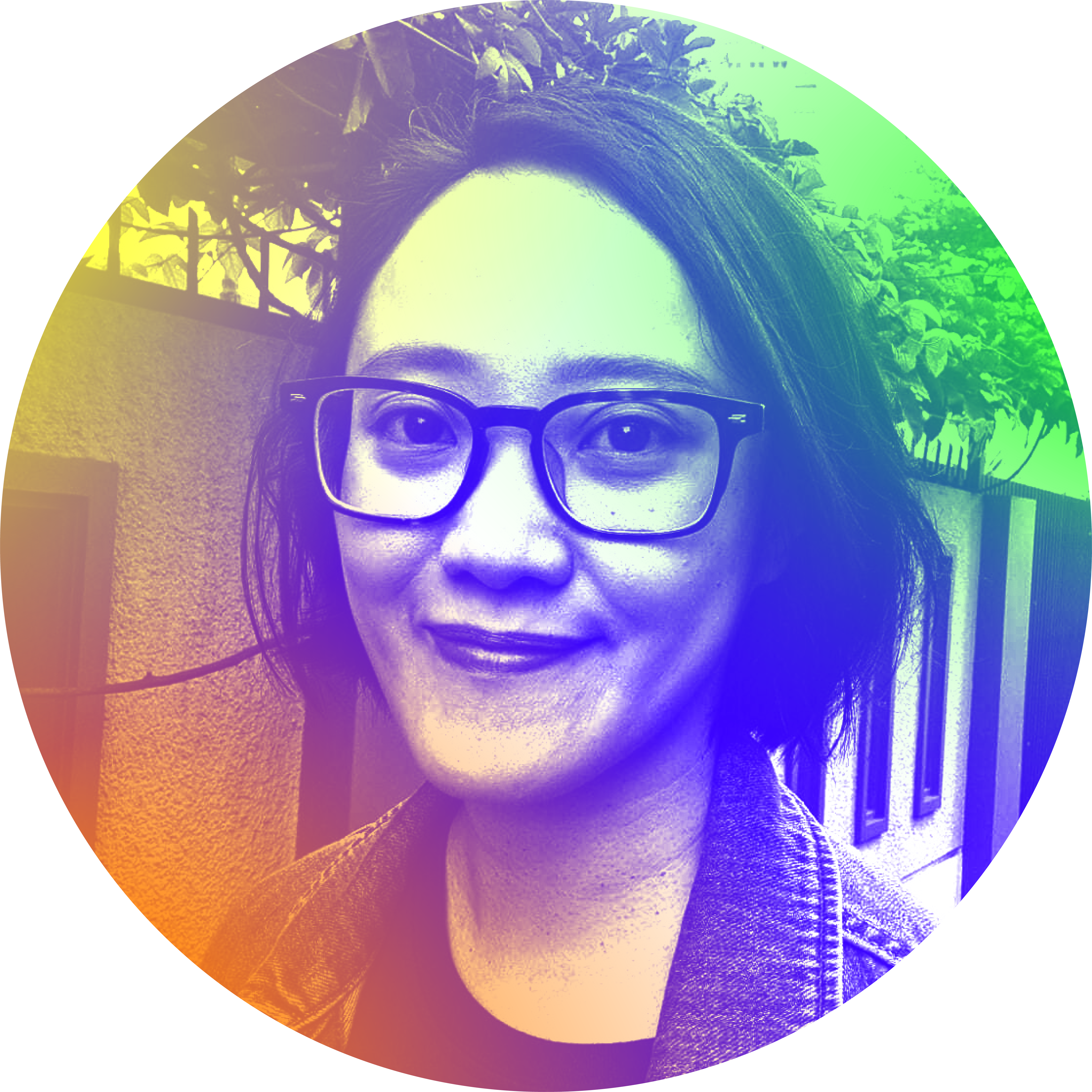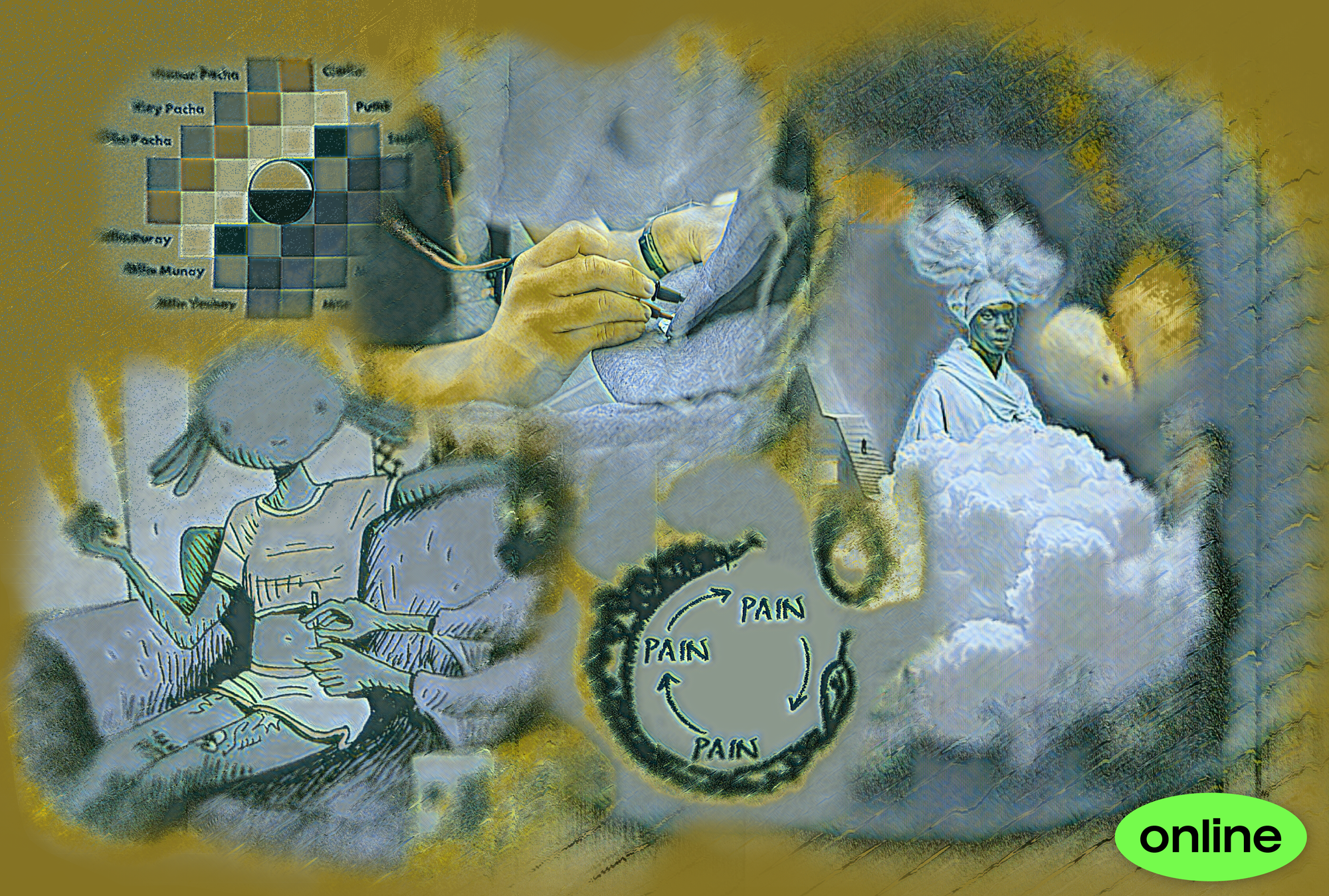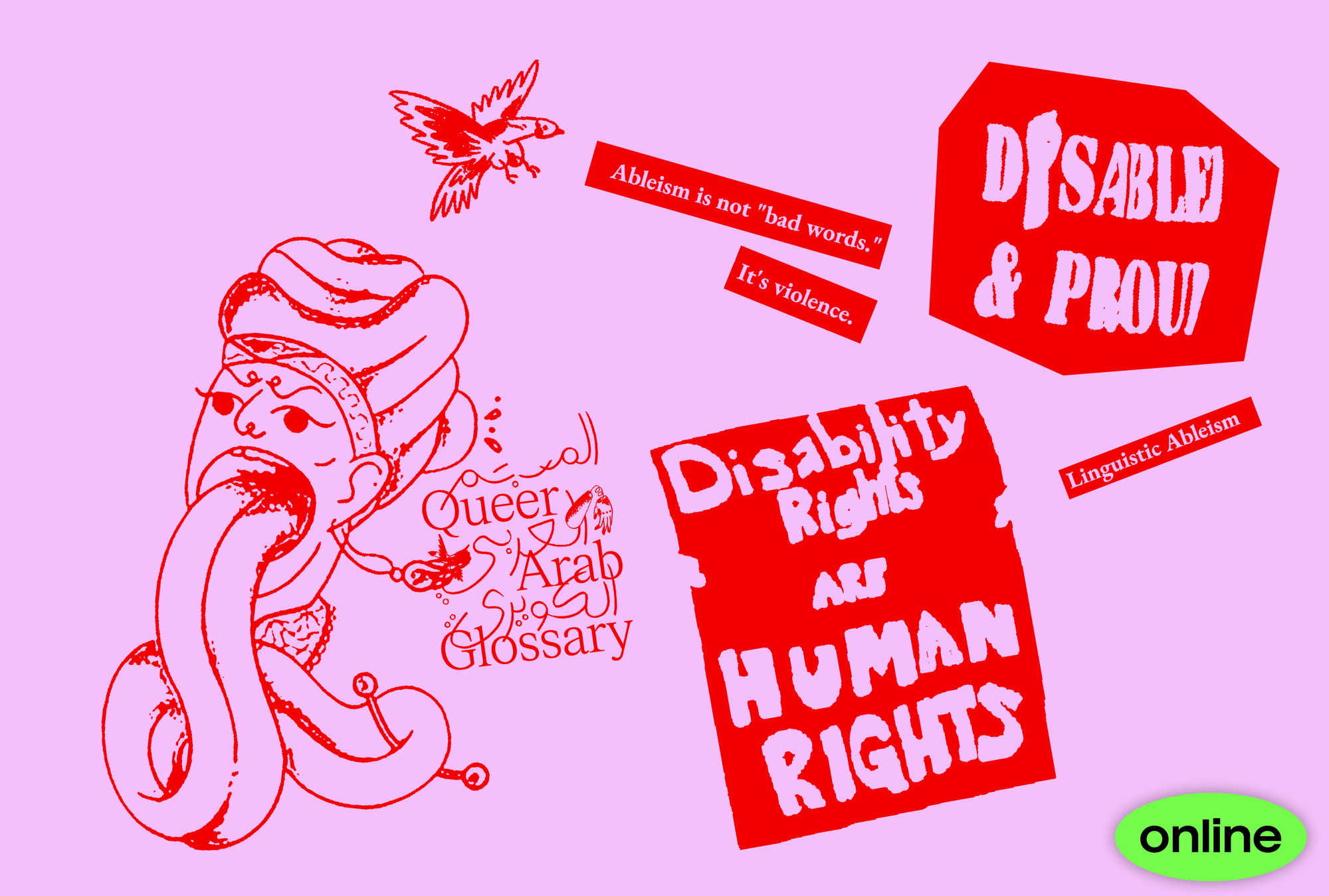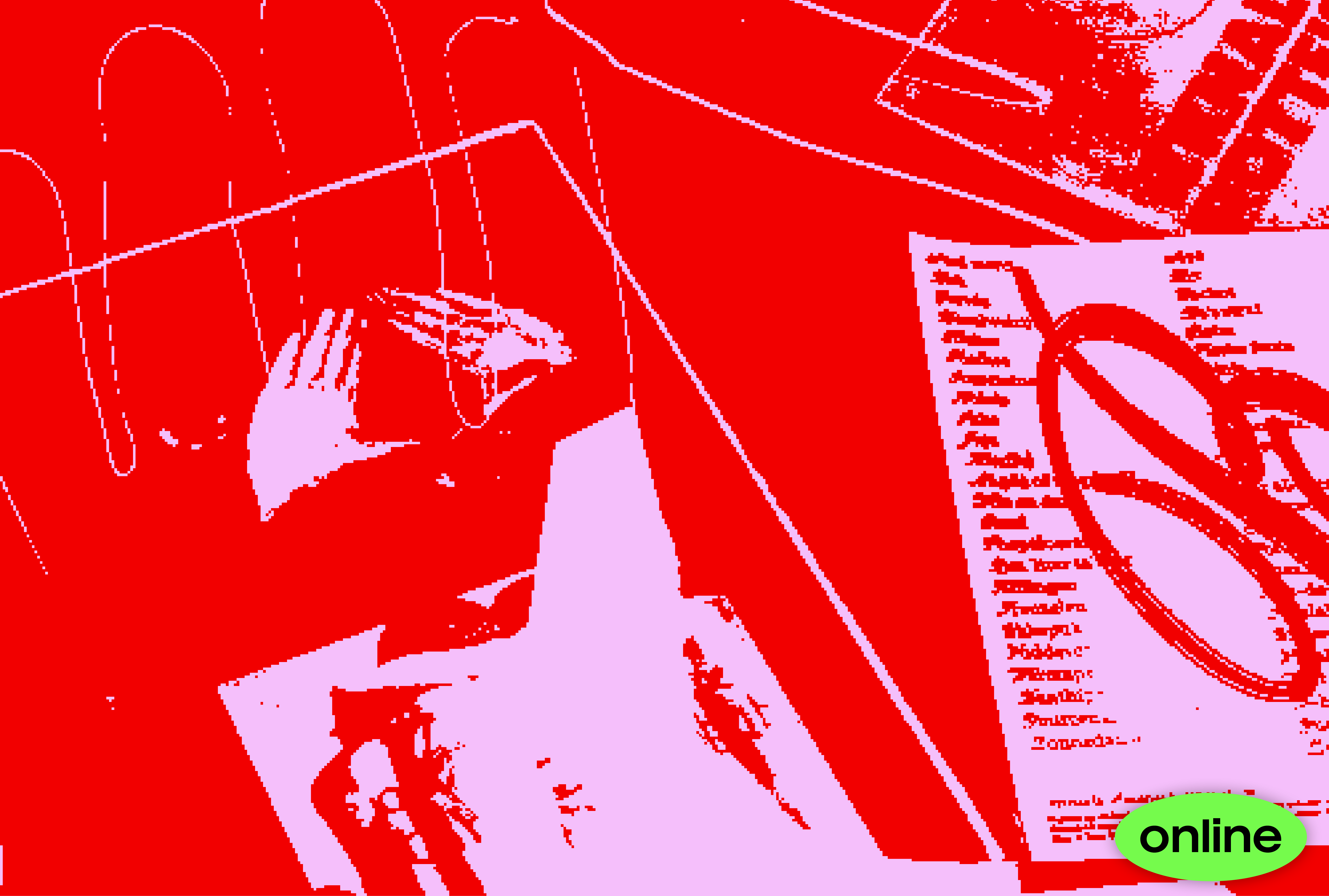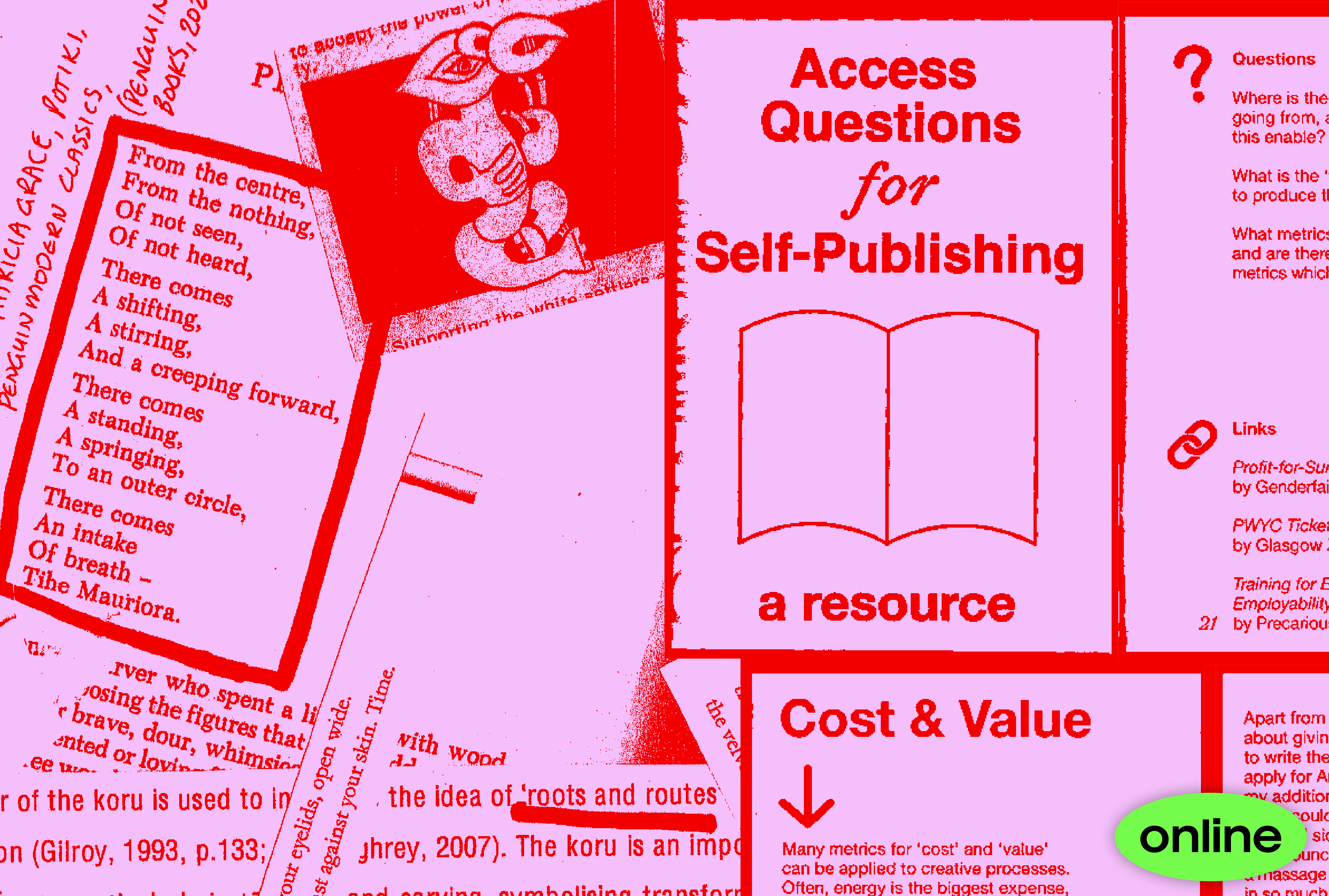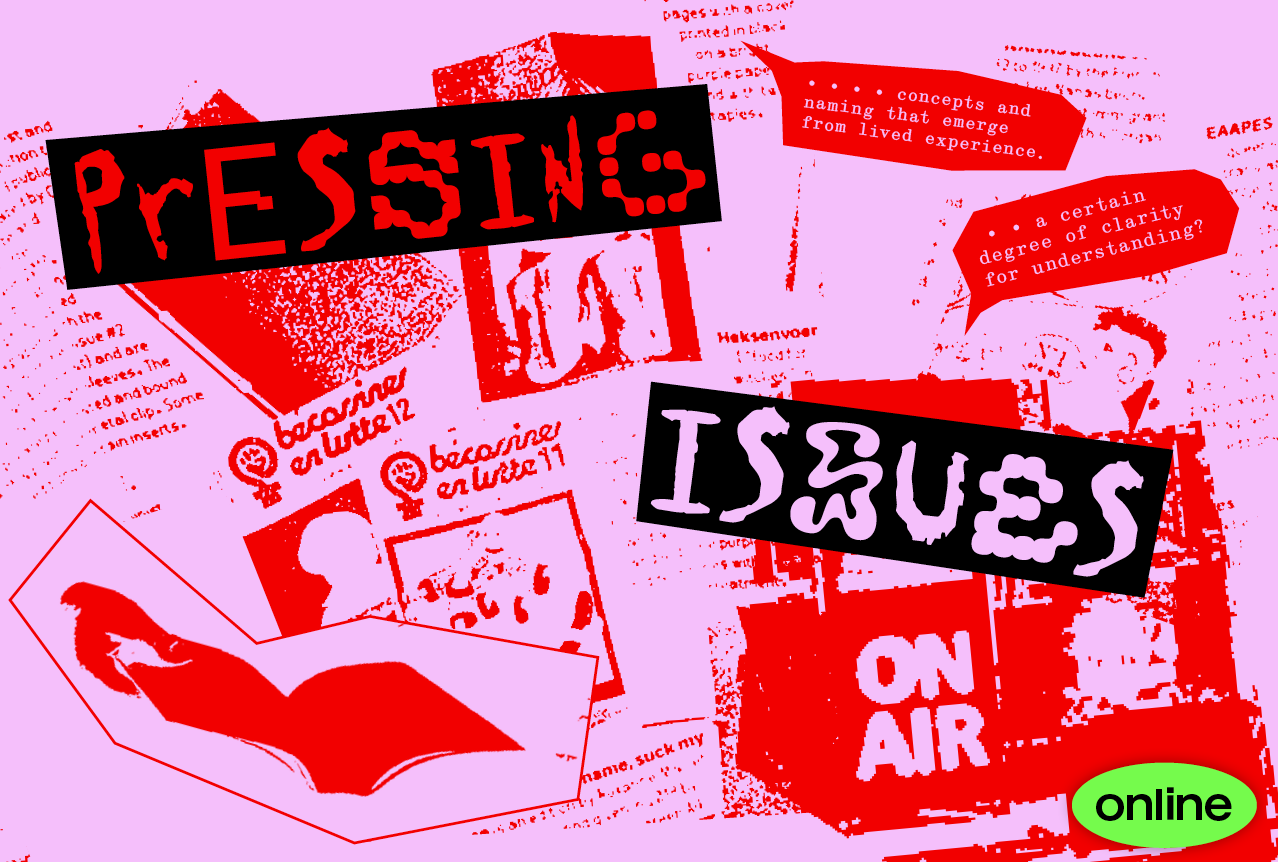
A series of online lectures, tutorials, and roundtable conversations discussing the politics of translating, archiving, and publishing.
Publishing is a vital practice for activist movements—it makes stories heard, forges connections across distances, and amplifies political struggles. From newsletters and periodicals that weave networks of solidarity, to archives that document resistance, to books that imagine new worlds, and even to radio stations that transmit and carry voices beyond borders—publishing does more than just circulate knowledge. It moves, it connects, it ignites.
But engaged publishing is not only about bringing political struggles to the public; it is also about questioning how knowledge is produced and shared. Activist publishing turns its critical gaze inward, asking: Which languages are used? Whose voices are heard, and whose remain on the margins? What forms of knowledge are legitimized, and which are erased? It challenges the dominance of the written word, interrogates the material conditions of its own production, and resists the logic of exclusivity and gatekeeping. Publishing, then, is not just about what is said, but about how it is made possible—and for whom.
Yet, despite its rich history, self-organized publishing continues to grapple with the constraints of neoliberal capitalist systems that shape who gets to be heard and which stories endure beyond the immediacy of specific movements.
The Pressing Issues online series explores a variety of approaches to publishing, translation, and archiving as political practices. Open to practitioners within the field as well as researchers and students eager to engage with publishing, the program offers a critical look behind the scenes—examining how it shapes discourse and unpacking the challenges, politics, and hopes embedded in its inherently community-based endeavors.
From October 2025 to January 2026, six online lectures, one tutorial, and one roundtable conversation take a deep dive into the topic—from researching Iranian feminist periodicals and building Pan-African liberation through archiving, to surviving capitalism as a queer publishing house, and fostering community through reading, publishing, and printing. The series explores the materiality of underground print, discusses the politics of translation beyond words, poses access questions in publishing, and examines the intersection of language and activism from within communities.
The event features a lineup of lecturers including Parasto Backman, Ly Xīnzhèn Zhǎngsūn Brown, Chimurenga platform, Lissa Choukrane, Loraine Furter, Be Oakley from GenderFail, Brigitta Isabella, Marwan Kaabour, Tamarra, Ferdiansyah Thajib, aqui Thami from Sister Library, and Kaiya Waerea from Sticky Fingers Publishing.
Each event will be followed by an open discussion, where you can pose direct questions to the lecturer and other participants from all over the world. All lectures will be available synchronously via Zoom and asynchronously as recordings on Vimeo.
You will also be invited to join the Futuress Slack platform to continue sharing and learning from others. Our Futuress Slack channel includes participants from past and present Futuress learning programs, and is a growing community of designers, researchers, educators, and activists from all corners of the world.
Overview
- Start: October 9, 2025
- End: January 22, 2026
- 6 lectures, 1 tutorial & 1 roundtable
- All events are available
– synchronously via Zoom, and
– asynchronously as recordings on Vimeo - All events start at 6 pm CE(S)T
- The first event is free of charge
- Prices for the whole series are available on a sliding scale:
– Solidarity: CHF 290
– Standard: CHF 150
– Reduced: CHF 70
– Low Income: CHF 35 - Registration is available on a rolling basis, so you can join at any time!
Registration
Speakers Line-Up

Oct 9 | 6 pm CEST
Special free lecture
Iranian Feminist Publishing Highlighted:
The History of the Periodical Zaban-E Zanan and Insight Into the Ongoing Project Zaban
with Parasto Backman (she/her)
Designer & Educator
Oct 30 | 6 pm CET
Tutorial
Starting a Publishing House:
Not Non-profit but Profit-for-Survival
with Be Oakley (they/them)
from GenderFail publishing platform
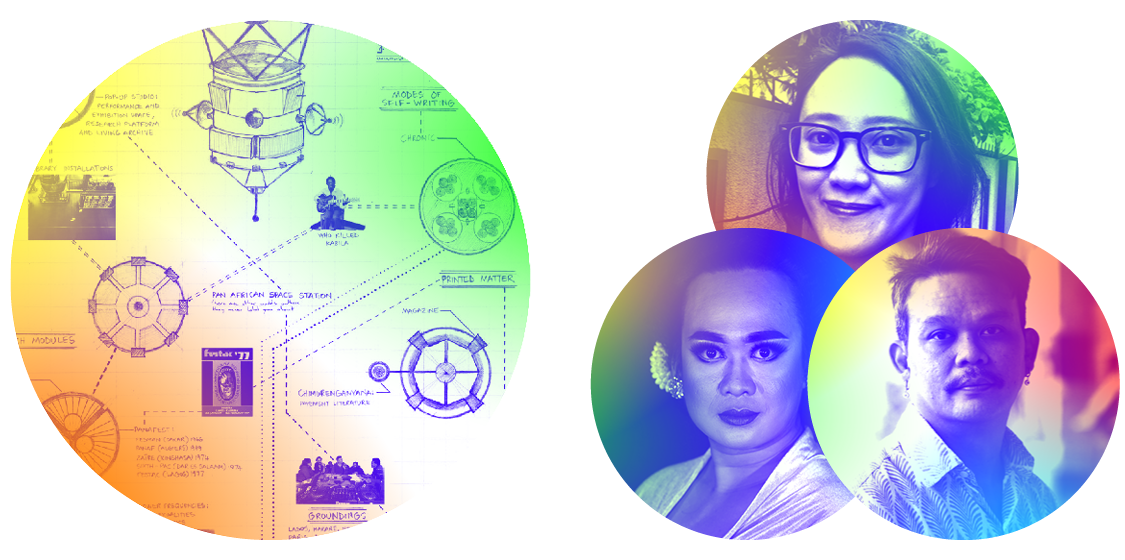
Nov 6 | 6 pm CET
Lecture
When You Kill Us We Rule:
Experimental Publishing from Exhibiting to Broadcasting
with the Chimurenga Pan-African publishing platform
Nov 20 | 2pm CET
Lecture Conversation
Surviving Through Untranslatability
with Brigitta Isabella, Tamarra, and Ferdiansyah Thajib

Dec 4 | 6 pm CET
Lecture
Access Questions, Intra-dependence, and Indigenous Feminist Print Publishing
with Kaiya Waerea (he/they)
from Sticky Fingers Publishing
Dec 18 | 6 pm CET
Lecture
I Love Reading Women:
The Making of the Feminist Community-Run Sister Library
with aqui Thami
from Sister Library
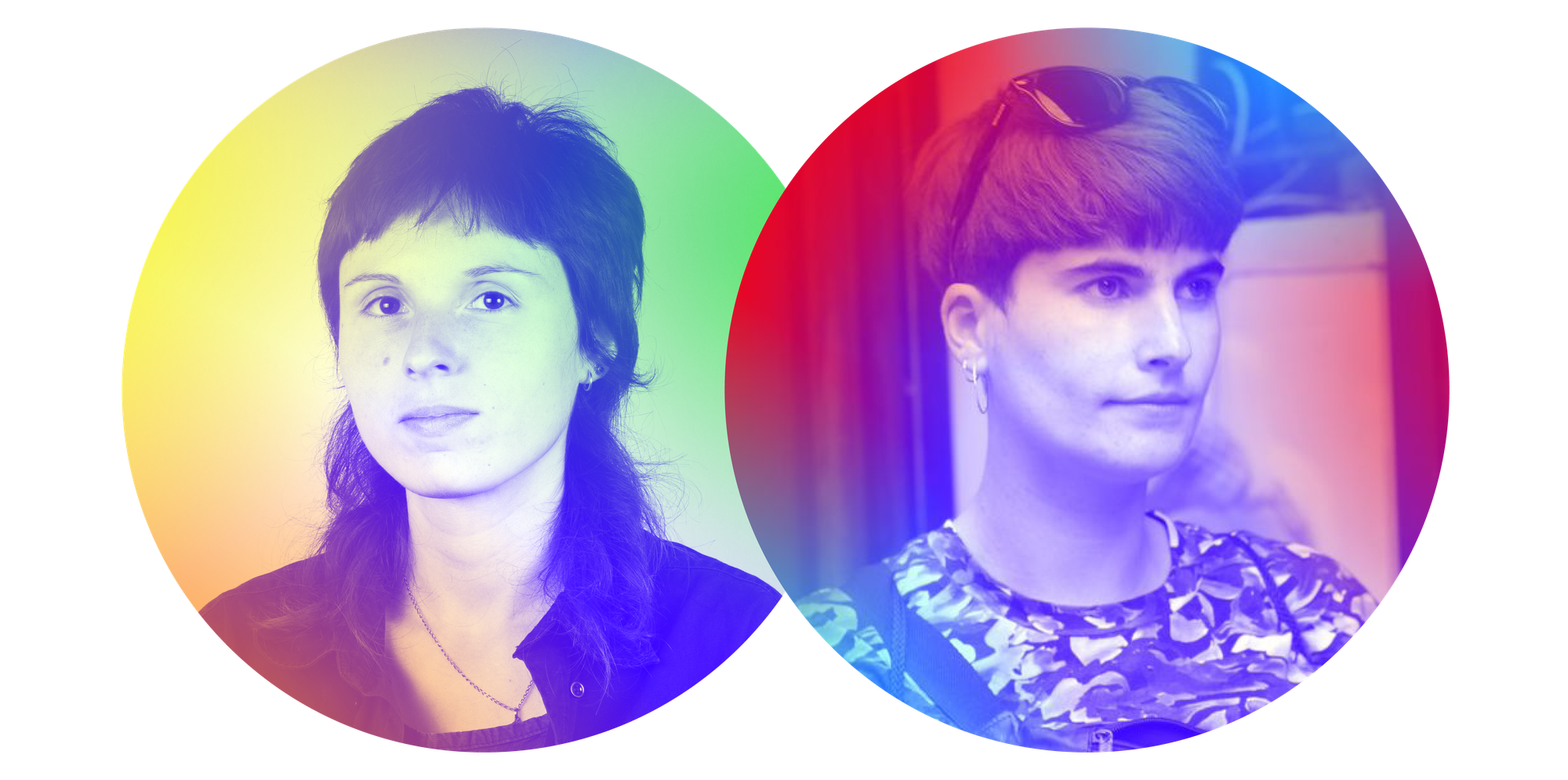
Jan 8 | 6 pm CET
Lecture
Materiality of ♀ and ♀♀ Publications in Belgian Archives: An Ode to Messy Bindings
with Lissa Choukrane (she/her) – Independent Researcher
and Loraine Furter (she/her) – Designer & Researcher

Jan 22 | 6 pm CET
Roundtable conversation
The Politics of Language:
Anti-Ableist Narrative and Queer Arab Slang
with Ly Xīnzhèn Zhǎngsūn Brown (they/them) – Advocate, Organizer, Strategist, Scholar & Writer
and Marwan Kaabour (he/him) – Graphic Designer, Artist & Writer
Full Program
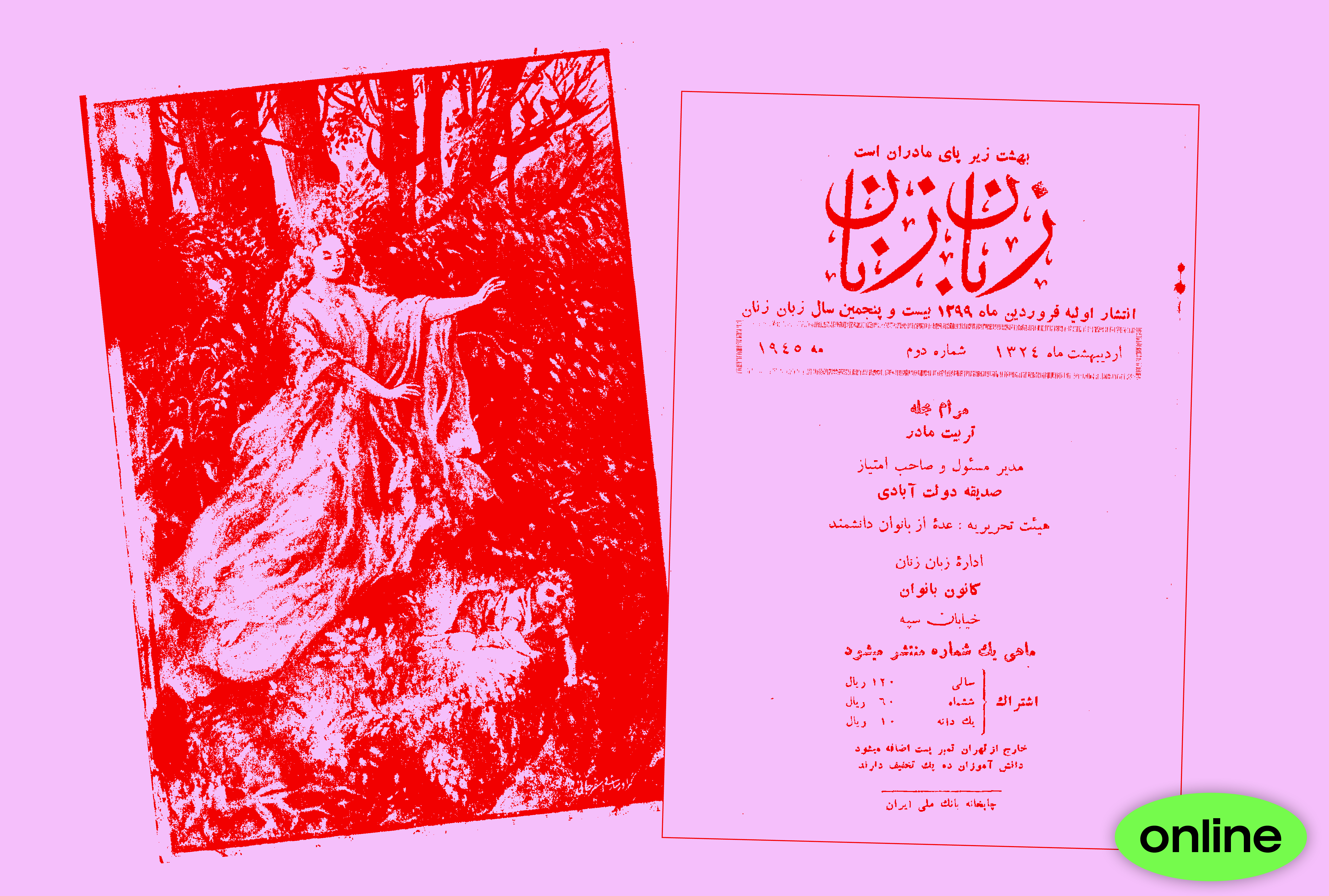
Oct 9, 2025 | 6 pm CEST | online | free | lecture | with Parasto Backman
This special free lecture is a historical deep dive into the Iranian feminist periodical Zaban-e Zanan and the ongoing artistic research project Zaban.
Zaban-e Zanan was one of the first periodicals founded and published by a woman in Iran. Founded June 18, 1919, in Isfahan, Iran, by Sadique Dowlatabadi, Zaban-e Zanan raised the issue of women’s rights through articles written By women For women. It was most likely the first in Southwest Asia to use the word Zan (woman) in the title.
Sadique Dowlatabadi belonged to the Iranian Suffragette movement, and she advocated for equal cultural rights between women and men. Her purpose with Zaban-e Zanan, which was published at intervals between 1919 and 1945, was education and teaching.
The ongoing project Zaban examines the fonts and ornaments used in the periodical, as well as Dowlatabadi’s handwriting. This, together with relevant contemporary references, forms the basis for the development of a font family with associated ornaments.
In this lecture, graphic designer and educator Parasto Backman gives a brief background about Zaban-e Zanan and the artistic research project Zaban, which she conducts in collaboration with type designer Naïma Ben Ayed.
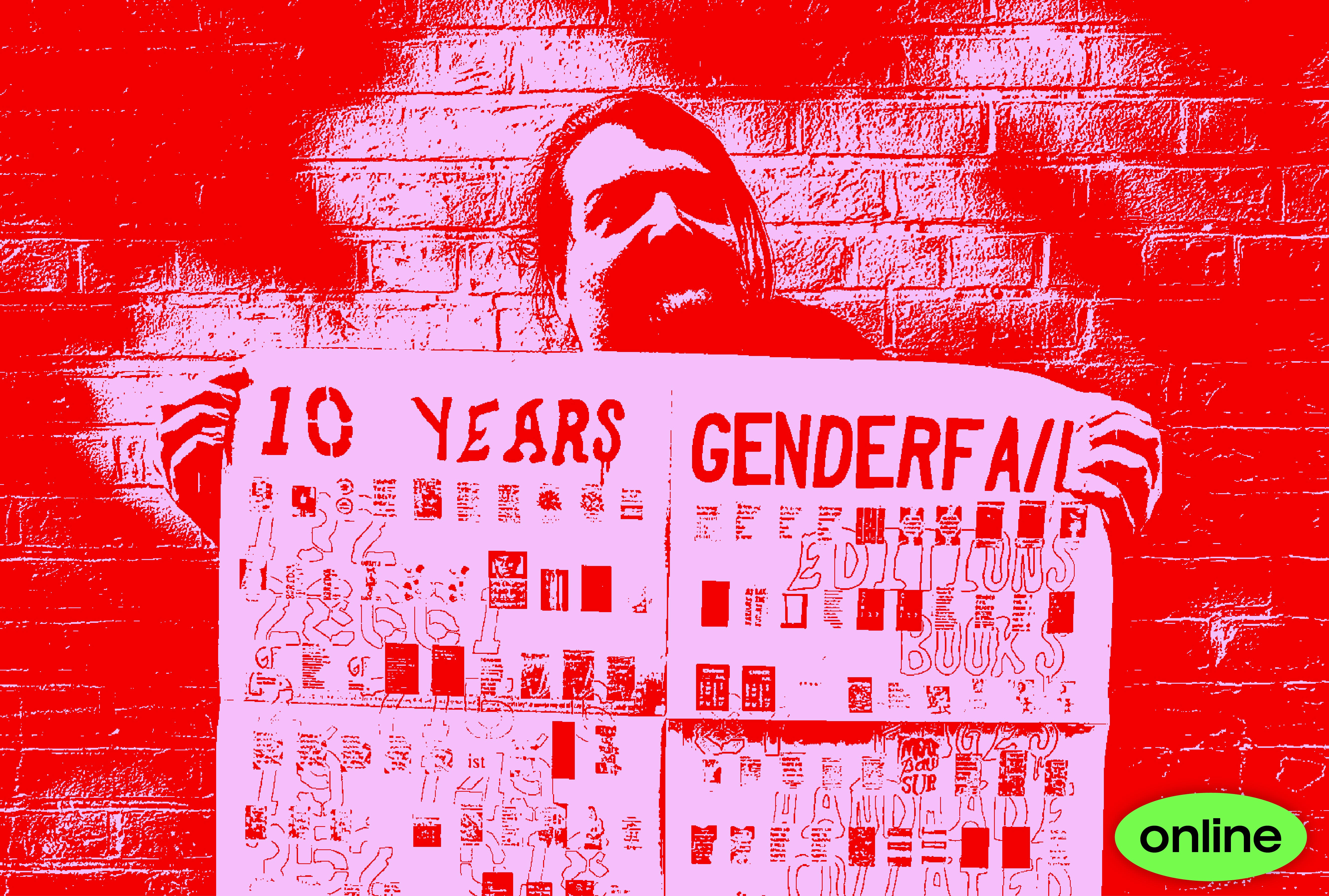
Oct 30, 2025 | 6 pm CEST | online | paid | tutorial | with Be Oakley from GenderFail
This tutorial shares insights into launching the GenderFail publishing platform and how to survive within capitalism.
As artists and designers, we aren’t taught about finding ways to make a living through independent practices. Given the challenges faced by practitioners from low-income or working-class backgrounds, the pursuit of creative dreams is often fraught with numerous obstacles and sacrifices—including a burden of debt.
In this tutorial, Be gives insights into their journey of the GenderFail publishing, programming, and archiving platform, discussing how they found ways to make a living off of publishing. As an attempt to have an honest account of advice, true stories, resources, and other information, Be shares their experience from the perspective of a working-class artist and publisher.
The second part of the tutorial dives into GenderFail’s model of profit-for-survival and non-exploitative-profit. “Profit” is essential to continue the platform’s activities and sustain those working and publishing around GenderFail. However, to say that the platform is “for-profit” does not speak to the complexities of a non-capitalist small publishing project. To GenderFail, “profit” means continuing the work without other means of capital, and, most importantly, to make money for others—to create profit-for-labor.
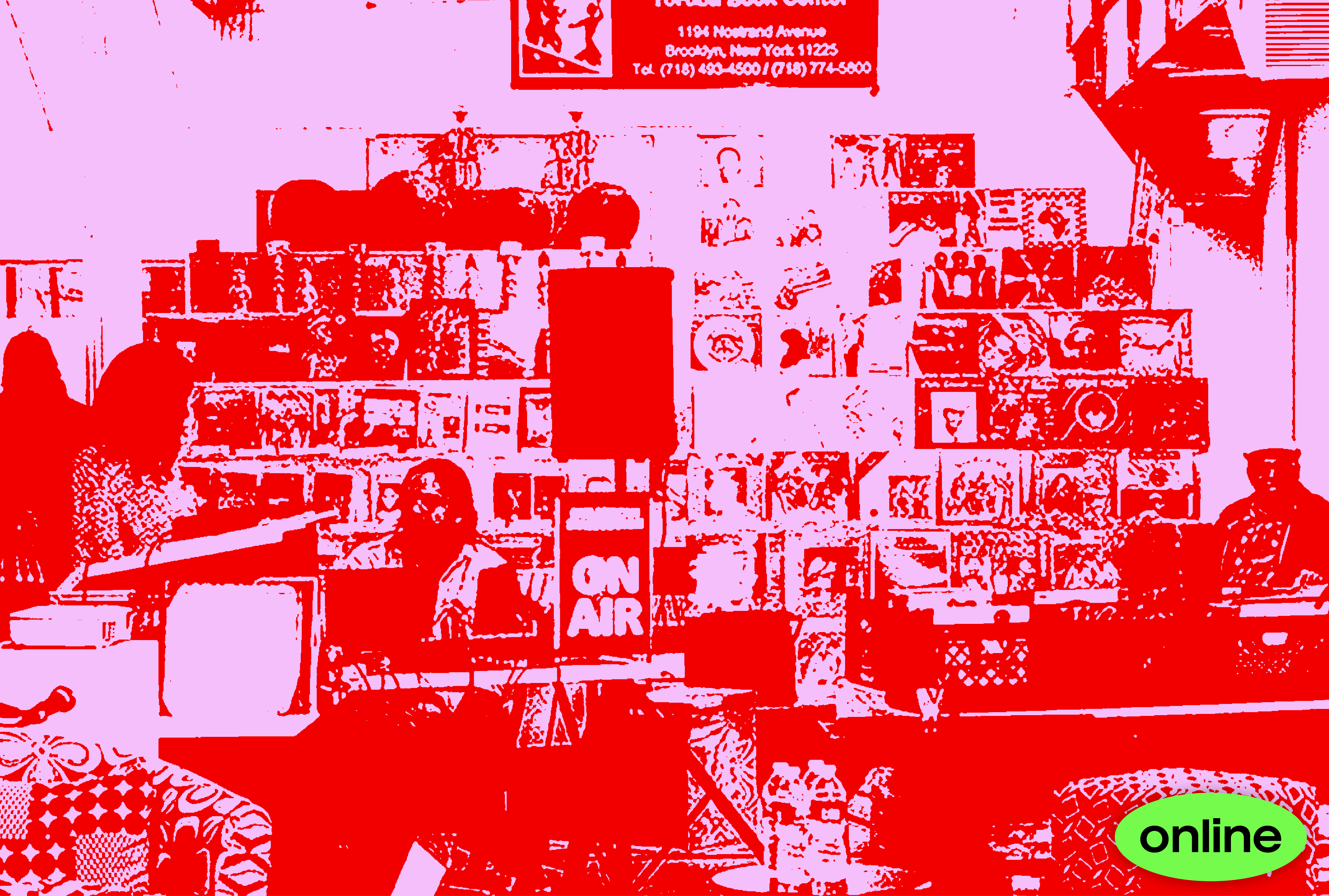
Nov 6, 2025 | 6 pm CET | online | paid | lecture | with Chimurenga
This lecture introduces the interventions (in print, radio, event, and installation imprint) of Chimurenga’s experimental publishing methodology and practice spanning almost 25 years.
Chimurenga, a pan-African publishing platform based in Cape Town, South Africa, has been producing objects in text, sound, and image through print and radio publishing, as well as in-situ imprints, for close to 25 years.
In this lecture, Duduetsang Lamola and Mischa Peters from Chimurenga will speak to its multi-instrumentalist approach and method of publishing and object making, which include, among others: Chimurenga Magazine, a journal of culture, art, and politics; a quarterly broadsheet called The Chronic; the Chimurenga Library, an ongoing intervention into knowledge production and the archive that seeks to re-imagine the library; the African Cities Reader, a biennial publication of urban life, Africa-style; and the Pan African Space Station (PASS), an online radio station, live performance platform, and pop-up studio.
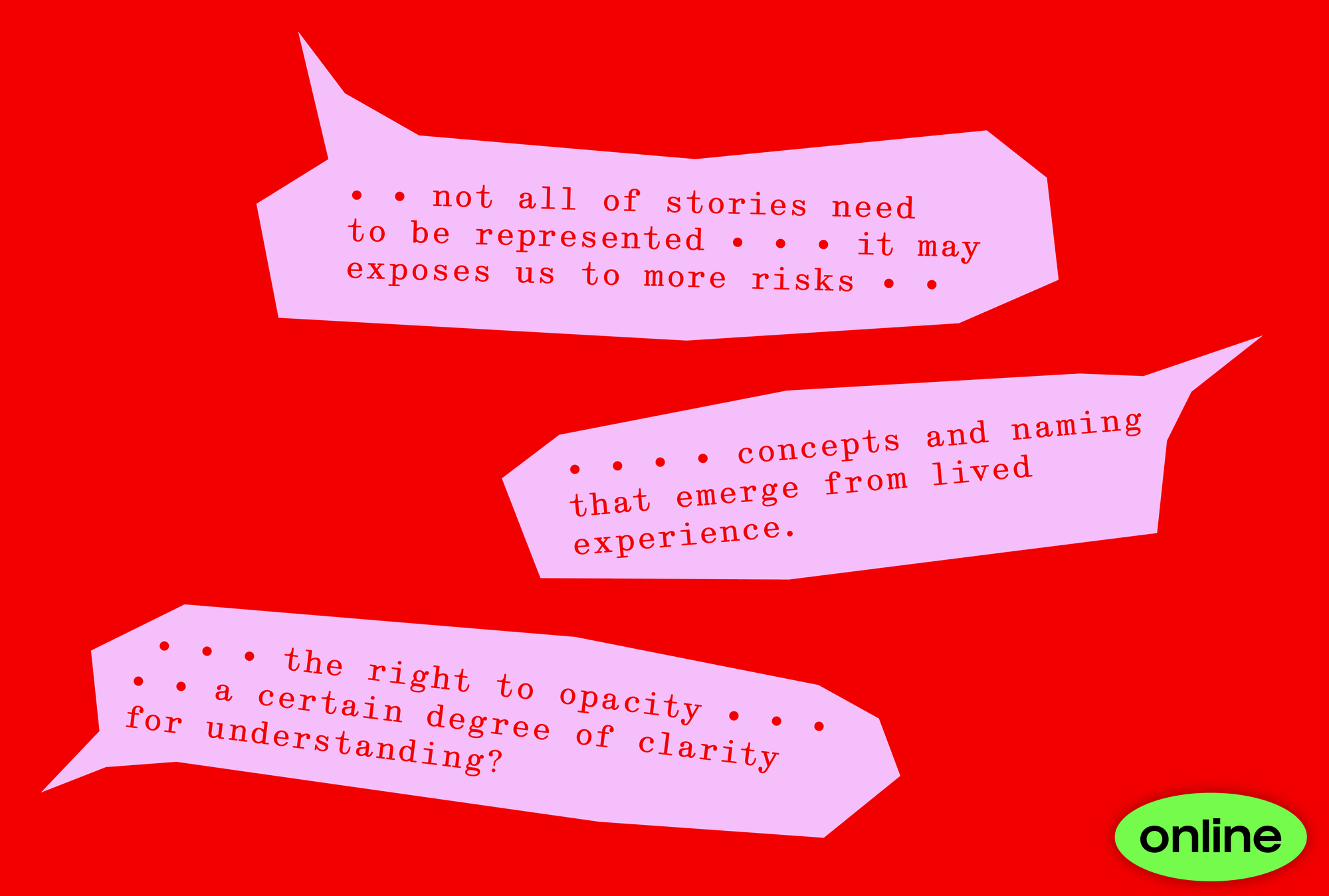
Nov 20, 2025 | 2 pm CET | online | paid | lecture conversation | with Brigitta Isabella, Tamarra, and Ferdiansyah Thajib
This lecture conversation traces how translating lived experiences grapples with opacity and honors irreducibility.
Tamarra, Brigitta Isabella, and Ferdiansyah Thajib venture into the ethically charged terrain of translation, probing how acts of interpretation and meaning-making are entangled with opacity, incommensurability, and uneven power relations. Rather than approaching translation as a mere exercise in linguistic conversion, the discussion foregrounds its ethical and political stakes, drawing attention to how certain experiences, affects, and epistemologies resist easy legibility and instead call for modes of engagement that honor their irreducibility.
Drawing on their collaborative experience of writing and translating “Surviving through In(visibility): A Ngalor Ngidul Conversation” (2020), the three contributors invite you to examine how translation can open possibilities toward more situated, accountable, and relational forms of engagement.
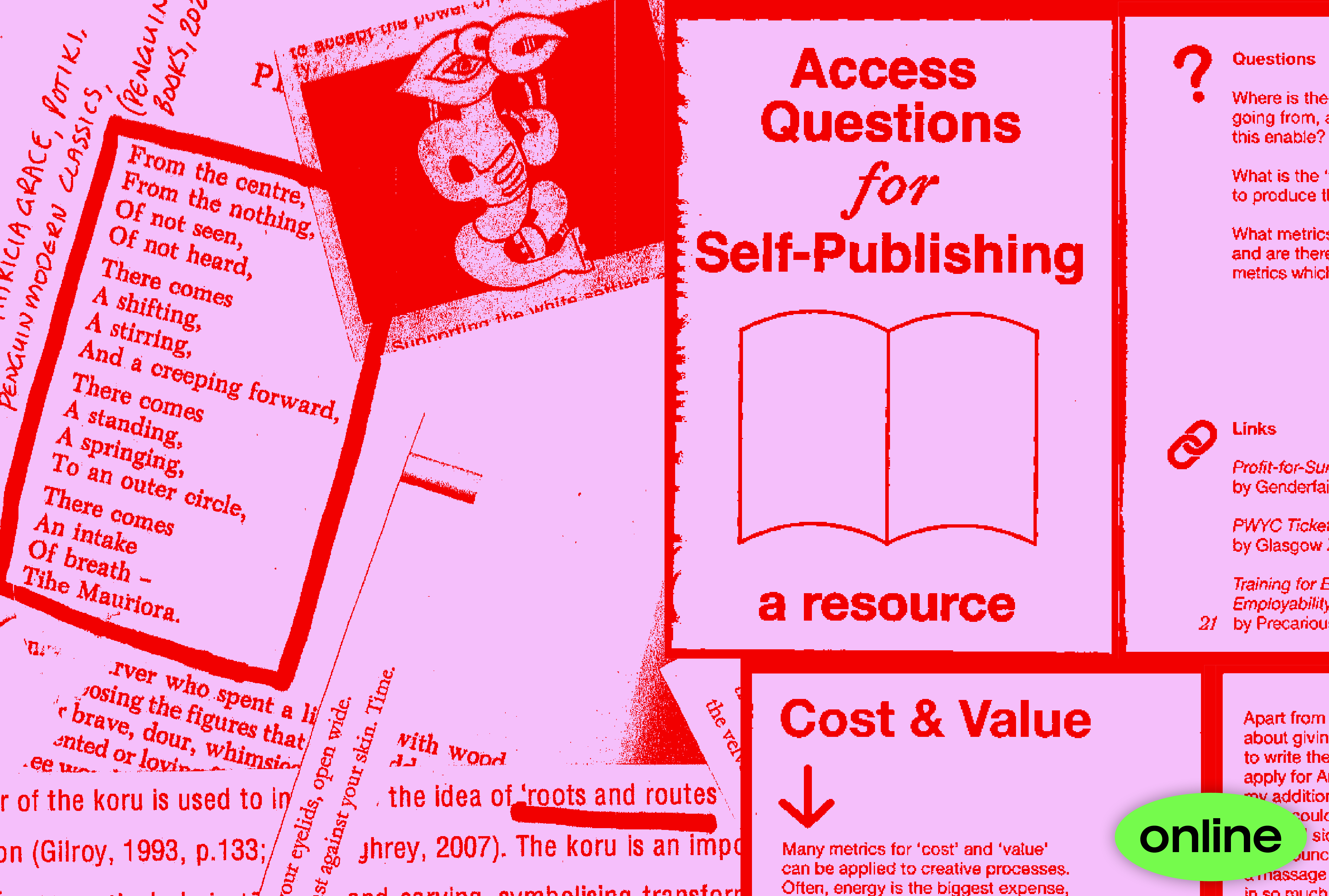
Dec 4, 2025 | 6 pm CET | online | paid | lecture | with Kaiya Waerea from Sticky Fingers Publishing
This lecture presents three distinct but imbricating frameworks through which Kaiya Waerea explores power, pleasure, and possibility within print publishing practice.
Kaiya Waerea’s ongoing research project “Unfurling Whakapapa Takatāpui” triangulates between Māoritanga (Māori world-view), whakapapa takatāpui (Indigenous queer/trans lineages), and publishing. Working with the epistemological form of the koru, the bud of a fern yet to unravel, in relation to Stuart Hall’s concept of “roots and routes” within diaspora consciousness, the dual motion of rooting down and forging routes outward asks what it means to consider print publishing a diasporic medium.
Kaiya Waerea also presents the work of their press Sticky Fingers Publishing through the principle of intra-dependance. Here, we borrow the prefix “intra,” which means inside, from the Barbadian term “intra-action,” to center the way our material conditions are co-contingent and mutually affective within the publishing process.
Finally, the lecture discusses Access Questions for Self-Publishing, a resource for thinking about what accessibility means within self- and independent publishing. It provides a framework of questions that aim to deconstruct normative narratives around publishing and analyze the barriers disabled people experience in trying to access knowledge production and distribution.
Through looking at these frameworks, the lecture addresses what meaningful reciprocity can look like across a range of spatial and temporal contexts.
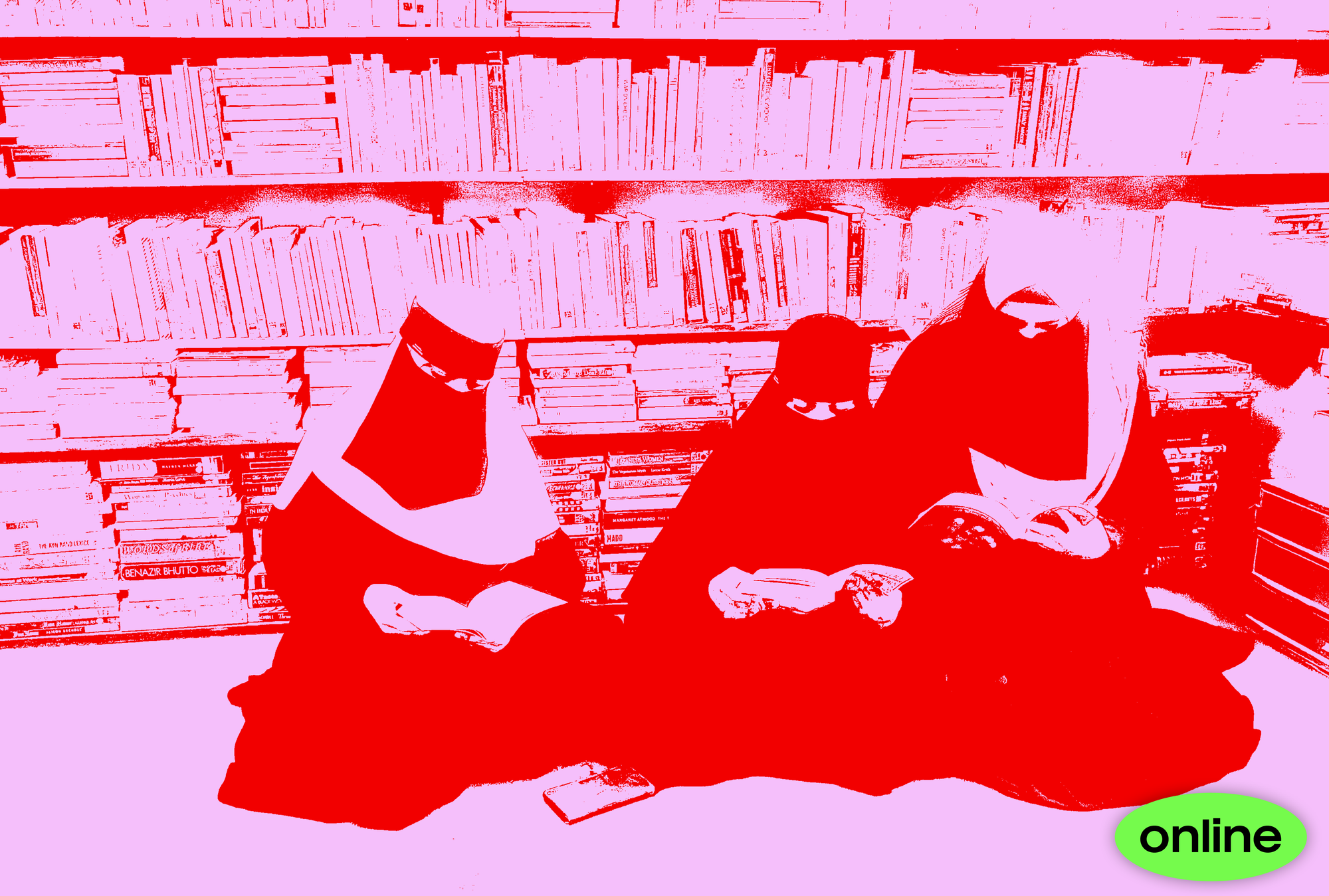
Dec 18, 2025 | 6 pm CET | online | paid | lecture | with aqui Thami from Sister Library
This lecture shares how Sister Library fosters feminist practices and community building with and through reading, publishing, and printing.
Sister Library is a living, breathing testament to the feminist praxis of reading as resistance. It began as an act of archiving joy and refusal, but quickly grew into something more—a collective pulse, a community-run effort to center and celebrate women’s voices, especially those silenced by patriarchy, racism, casteism, coloniality, and capitalism. It was born from a desire to create a tangible manifestation of this sisterhood, a physical space where the act of reading women becomes a communal experience, a source of power, and a catalyst for building a stronger, more inclusive feminist future.
In this lecture, Sister Library founder aqui Thami delves into the journey of creating this community-run haven, exploring how a shared passion for women’s voices builds a library, and in doing so, builds a community.
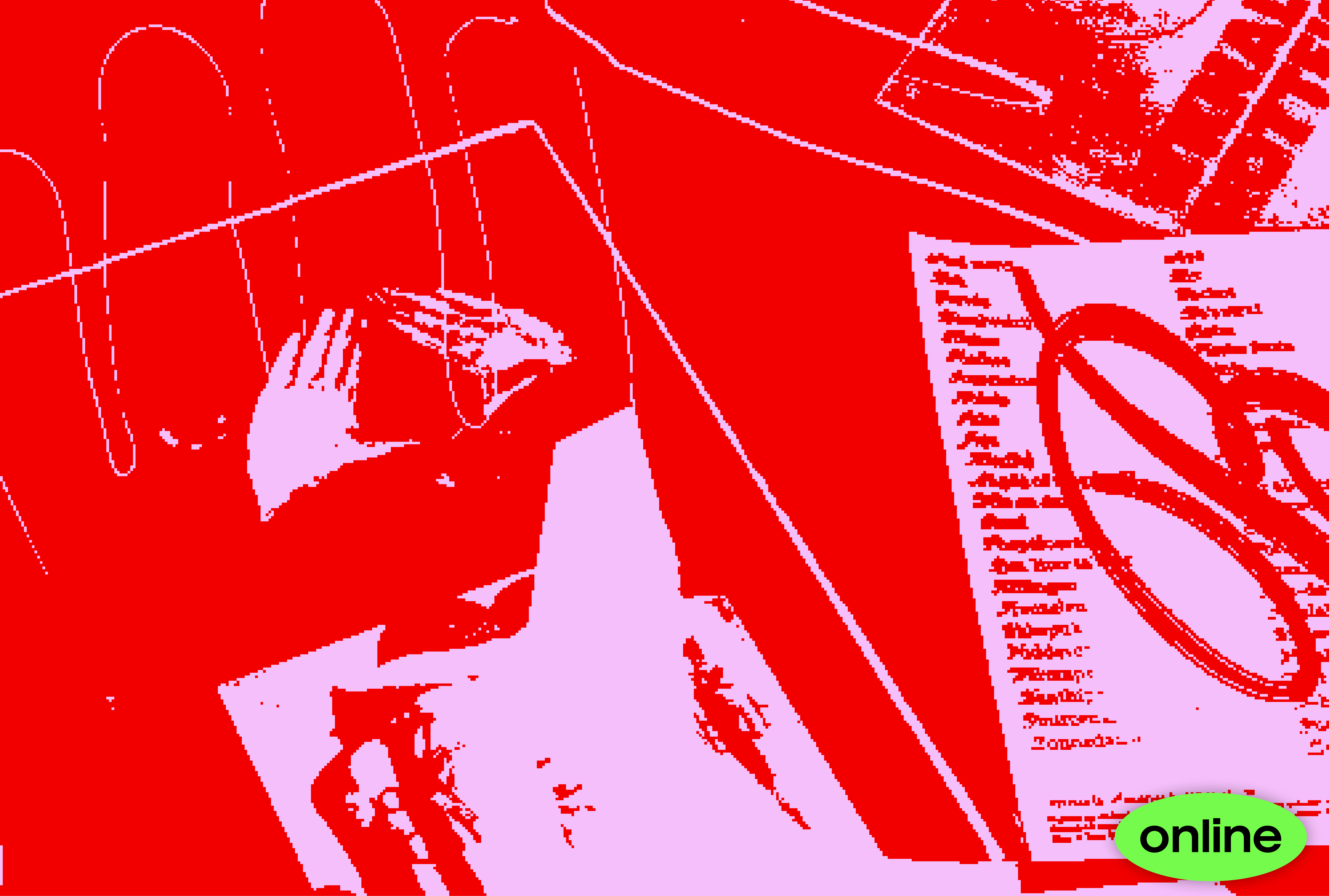
Jan 8, 2026 | 6 pm CET | online | paid | lecture | with Lissa Choukrane and Loraine Furter
This lecture explores the materiality of feminist and lesbian publications, their unconventional bindings, and their lives in Belgian archives.
Preparing for a visit to an archive is often based on very little visual information, mostly coming from text-based web interfaces, indicating themes or a selection of evocative titles.
Most of the publications we encountered, which we could now call °zines° or °micro editions° are relatively accessible—production, distribution, and price-wise. They do not take up much space in a library. In fact, they sometimes get lost. With their thin, often folded spines, they are less visible, less orderly, and more fragile than rows of books with larger spines. As a result, they are usually placed in archives, more easily stored in boxes—thus missing having a bookshelf or other display adapted to them.We invite you to come with us into the soft, limp, messy bindings of feminist and lesbian publications and their lives in local Belgian archives. This inventory of forms shows inventive ways to transform folds and staples into sublime objects that convey powerful and subversive ideas. It is a source of inspiration—a genealogy creating a link between past and present practices.
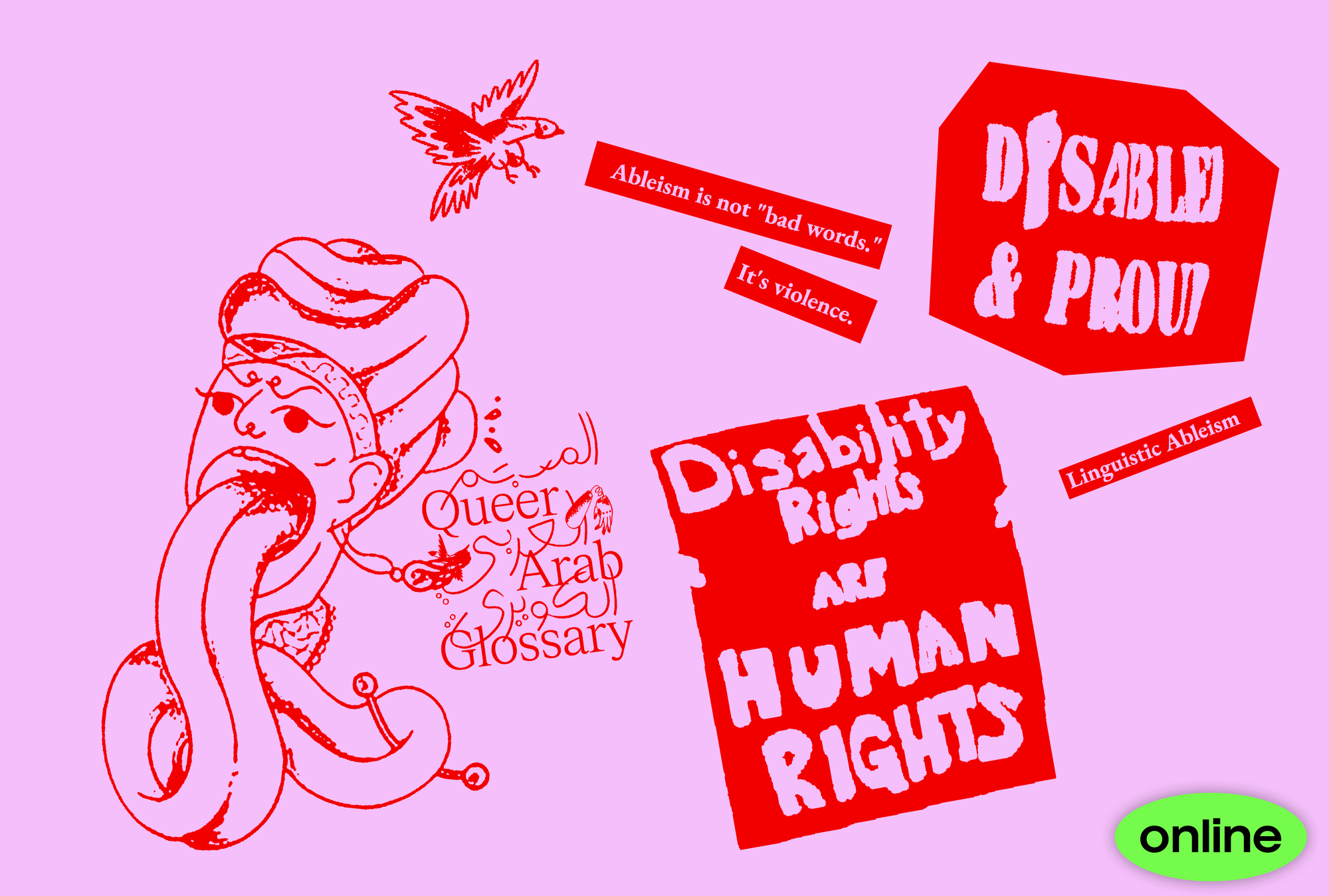
Jan 22, 2026 | 6 pm CET | online | paid | roundtable conversation | with Ly Xīnzhèn Zhǎngsūn Brown and Marwan Kaabour
This roundtable conversation discusses the intersections of language and activism across different communities and contexts.
Words and narratives are powerful carriers of meaning. As self-descriptions, they can create a sense of community and belonging; and as activist tools, they can make things graspable to empower or pave the way to call out discriminatory and oppressive structures. At the same time, words and narratives can be violent when used to suppress and vilify. As a living thing, language constantly changes, adjusts, and grows along with the communities and histories in which they are embedded. Words and narratives can be appropriated and re-appropriate, change meaning, get lost, or shape potential futures.
In this roundtable conversation, Ly Xīnzhèn Zhǎngsūn Brown and Marwan Kaabour dive into language as an activist practice, giving insights into the historical and political contexts of their publishing projects.
From 2011 to 2020, Ly Xīnzhèn Zhǎngsūn Brown wrote about the intersections of gender-based discrimination, racism, and ableism in their blog autistichoya.com, where they also published the Glossary of Ableist Phrases to create awareness of how language perpetuates ableism.
Marwan Kaabour’s 2024 published book The Queer Arab Glossary is an exploration of the linguistic landscape around queerness across the entirety of the Arabic-speaking region. The compilation features more than 300 words and terms of queer slang, ranging from the humorous to the harrowing, serious to tongue-in-cheek, pejorative to endearing. The book also features an anthology of texts by a range of writers exploring themes of language, queerness, slang, and Arab identity.

